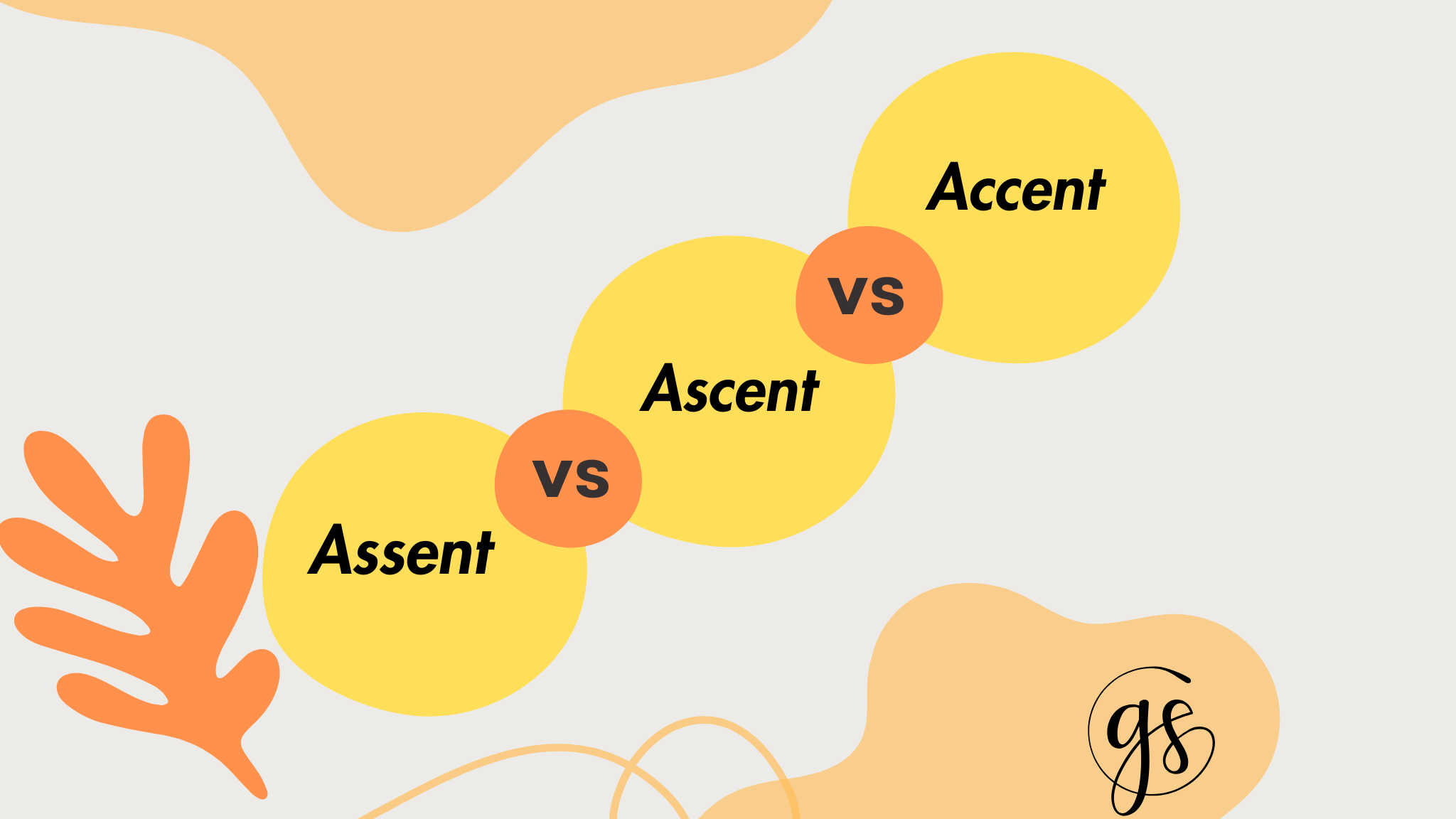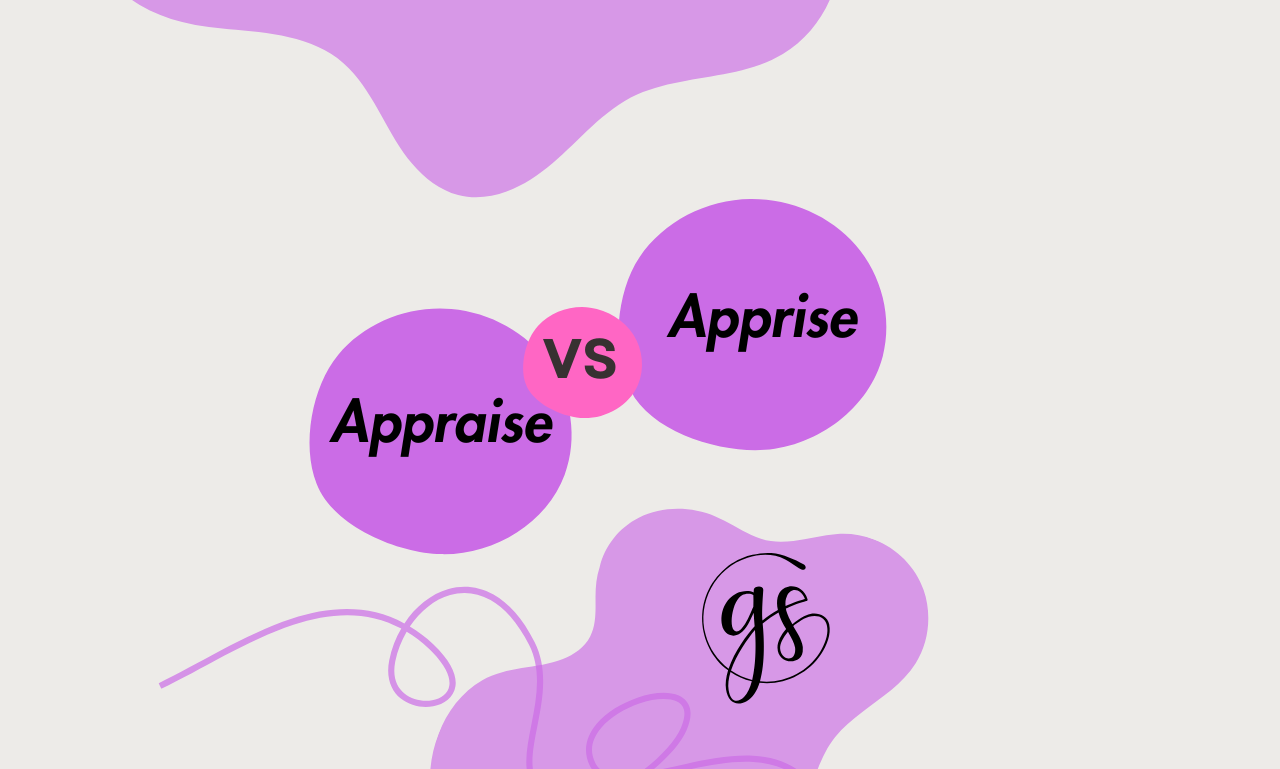Introduction: Meaning
Assent meaning:
This refers to the expression of approval or agreement. It’s often used in contexts like formal discussions or decision-making, where someone agrees to a proposal or idea.
Ascent meaning:
This means the act of rising or climbing. It can refer to a physical climb, such as going up a mountain, or a metaphorical rise, like an increase in status or achievement.
Accent meaning:
This can refer to the way words are pronounced in different languages or regions, highlighting particular syllables or sounds. It can also describe a distinctive feature or emphasis in speech or writing.
Their is one more confusion of accent vs dialect. An accent is a way of pronouncing words, while a dialect is a variety of a language that includes pronunciation, vocabulary, grammar, and more.
Origin
- Assent originate from the Latin assentire, which means “to agree” or “to feel with.” It combines ad- (to) and sentire (to feel), indicating a sense of agreement or approval.
- Ascent origin is from the Latin ascensus, which means “a climbing up.” It is derived from ascendere, where ad- (up) and scandere (to climb) come together, emphasizing the act of rising or climbing.
- Accent originate from the Latin accentus, which means “song added to” or “tone.” It is composed of ad- (to) and cantus (song or tone), relating to the emphasis or modulation of voice in speech.
Synonyms
| Assent synonyms | Ascent synonyms | Accent synonyms |
| Agreement | Climbing | Dialect |
| Consent | Rising | Tone |
| Approval | Soaring | Cadence |
| Accord | Upgrade | Intonation |
| Modulation |
Antonyms
| Assent antonyms | Ascent antonyms | Accent antonyms |
| Dissent | Descent | Uniformity |
| Disagreement | Downfall | Monotone |
| Refusal | Decline | Standard pronunciation |
| Sanction | Diminution | Simplicity |
| Deterioration |
Example
Assent example
- The committee reached a unanimous assent on the new policy proposal after a thorough discussion.
- The contract cannot be finalized without the written assent of both parties.
- After listening to all the opinions, the group gave their assent to proceed with the plan.
- She nodded in assent when asked if she wanted to join the project.
Ascent example
- The hikers began their ascent up the mountain at dawn, eager to reach the summit before noon.
- Her ascent in the company was rapid, moving from intern to manager within just two years.
- The politician’s ascent to the presidency was marked by years of hard work and dedication.
- The ascent of the hot air balloon was smooth as it slowly rose into the clear morning sky.
Accent example
- She spoke with a French accent that was instantly recognizable, even though she had been living in the U.S. for years.
- The composer added an accent to the first beat of each measure to create a dramatic effect.
- The artist’s use of bold colors gave an accent to the otherwise minimalist design.
Conclusion
Understanding the distinctions between assent, ascent, and accent is crucial for clear and effective communication. While assent pertains to agreement or approval, ascent refers to the act of rising or climbing, and accent highlights the nuances of pronunciation or emphasis in speech. These subtle differences can significantly alter the meaning of a sentence, making it essential for writers and speakers alike to choose their words carefully.
FAQs
Do assent, ascent and accent share any similarities?
They all start with a- and end with -cent, but their meanings are distinct and relate to agreement, elevation, and pronunciation respectively.
What’s the difference between ascent and assent?
They may sound the same, but their meanings couldn’t be any more different. Assent is a word that indicates agreement or approval. Ascent refers to an upward movement.
What is the homophone for assent?
Ascent.
Tell about assent vs consent.
Consent may only be given by individuals who have reached the legal age of consent. Assent is the agreement of someone not able to give legal consent to participate in the activity.




